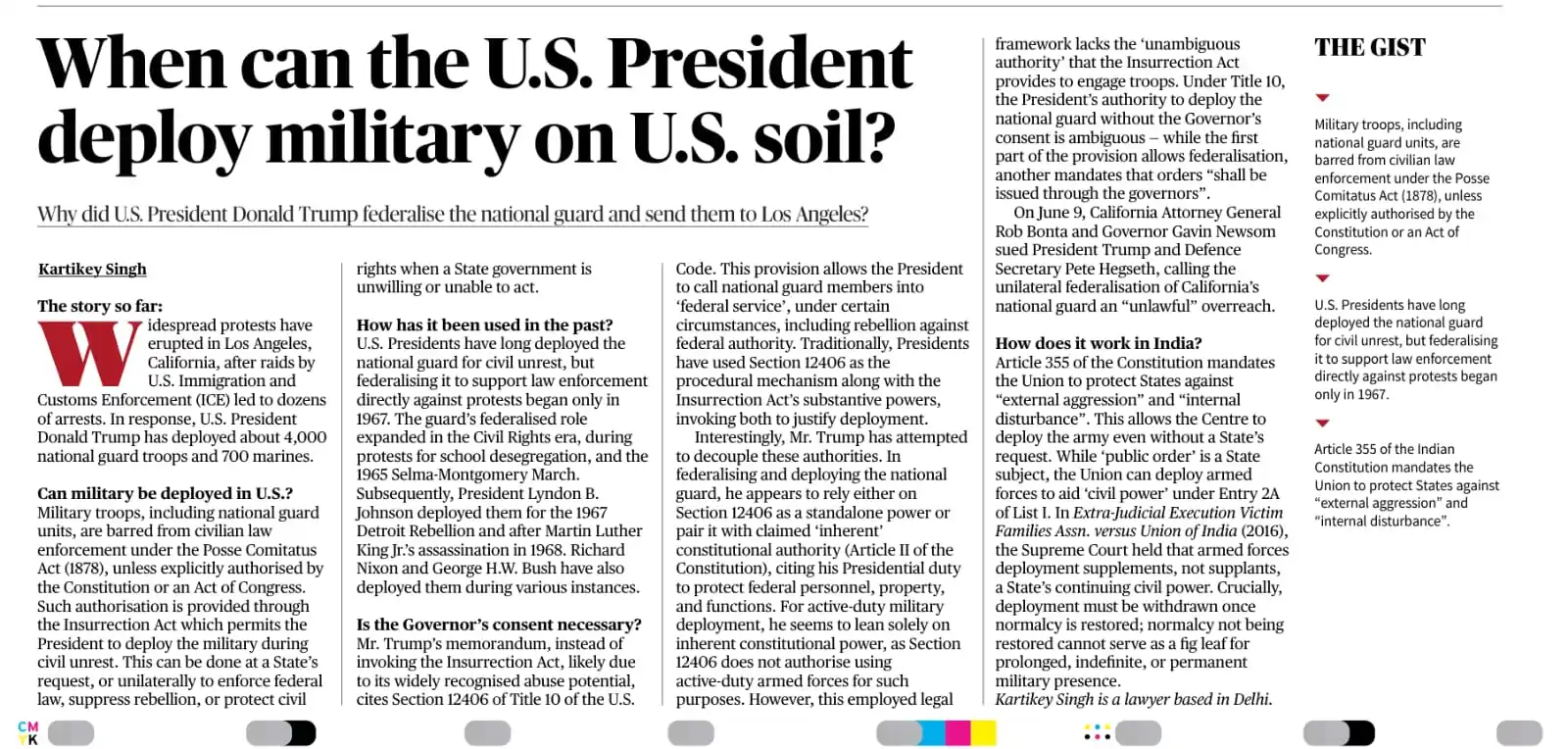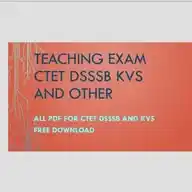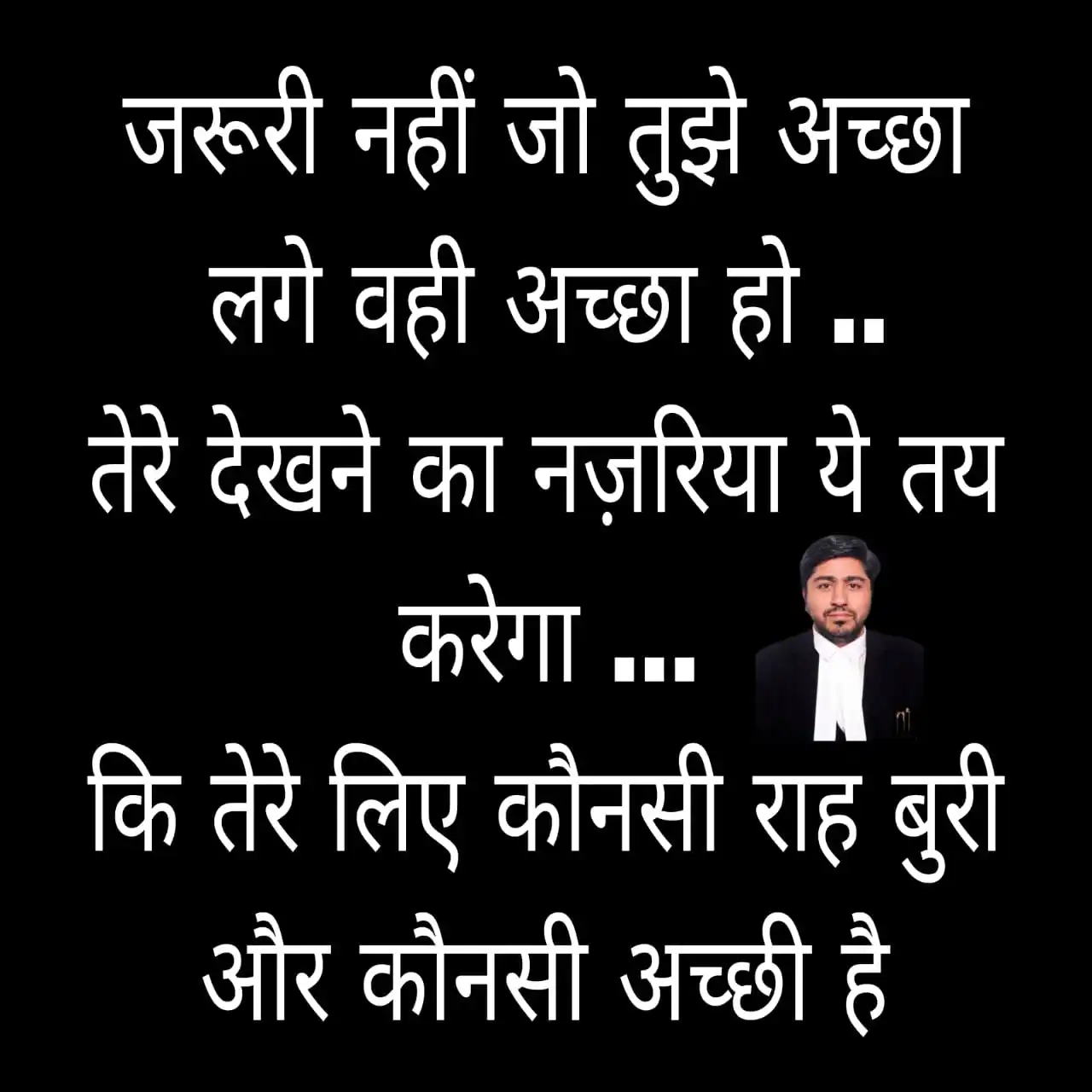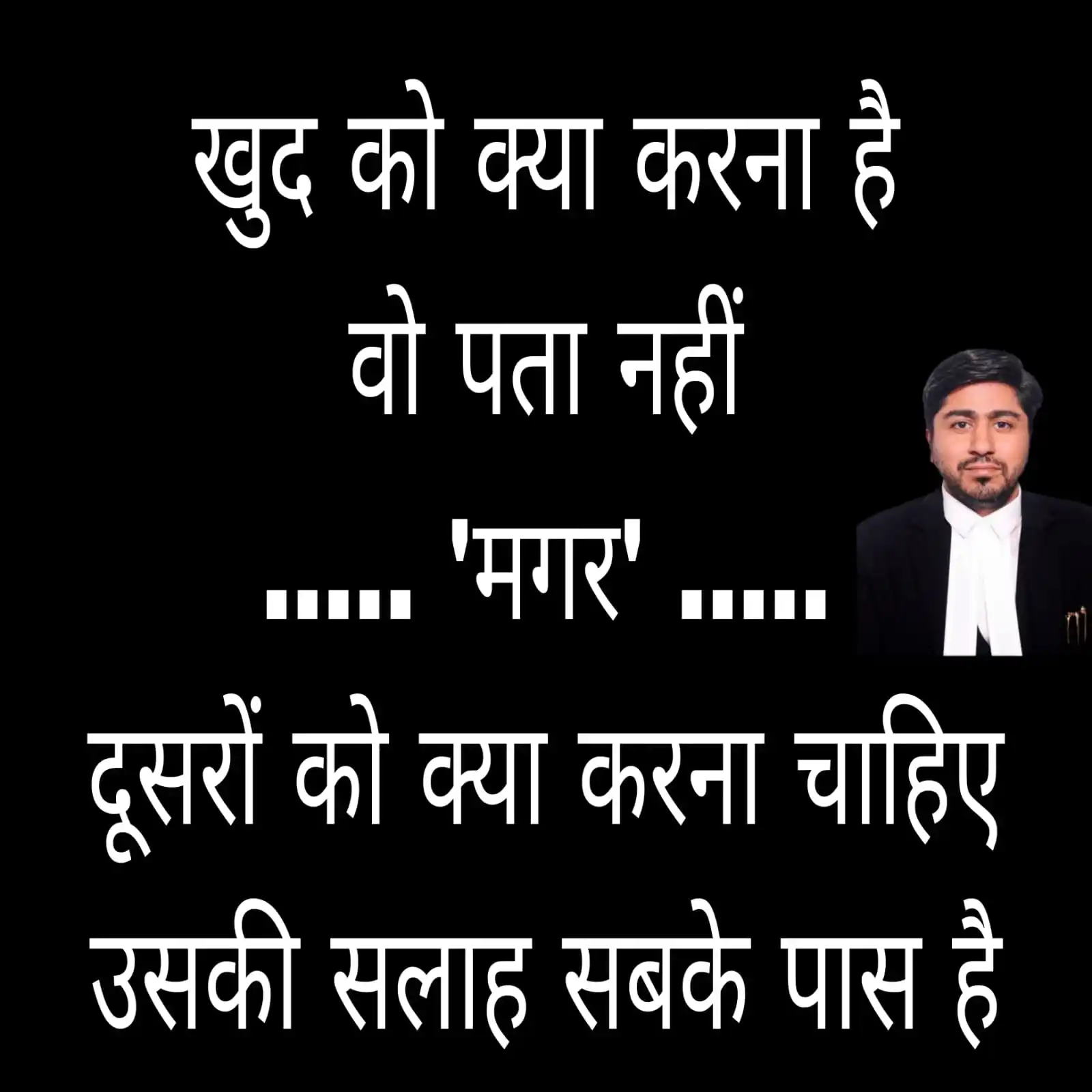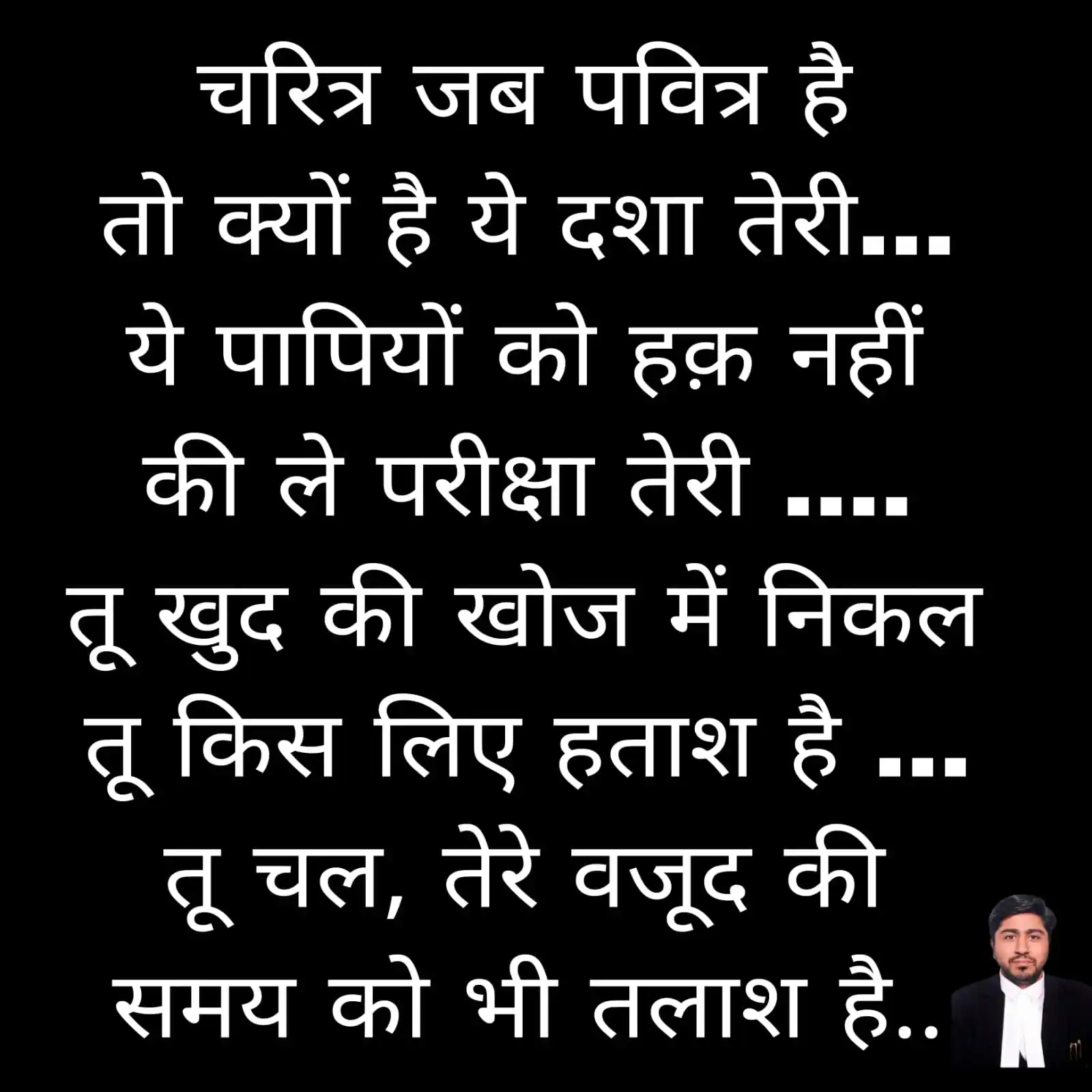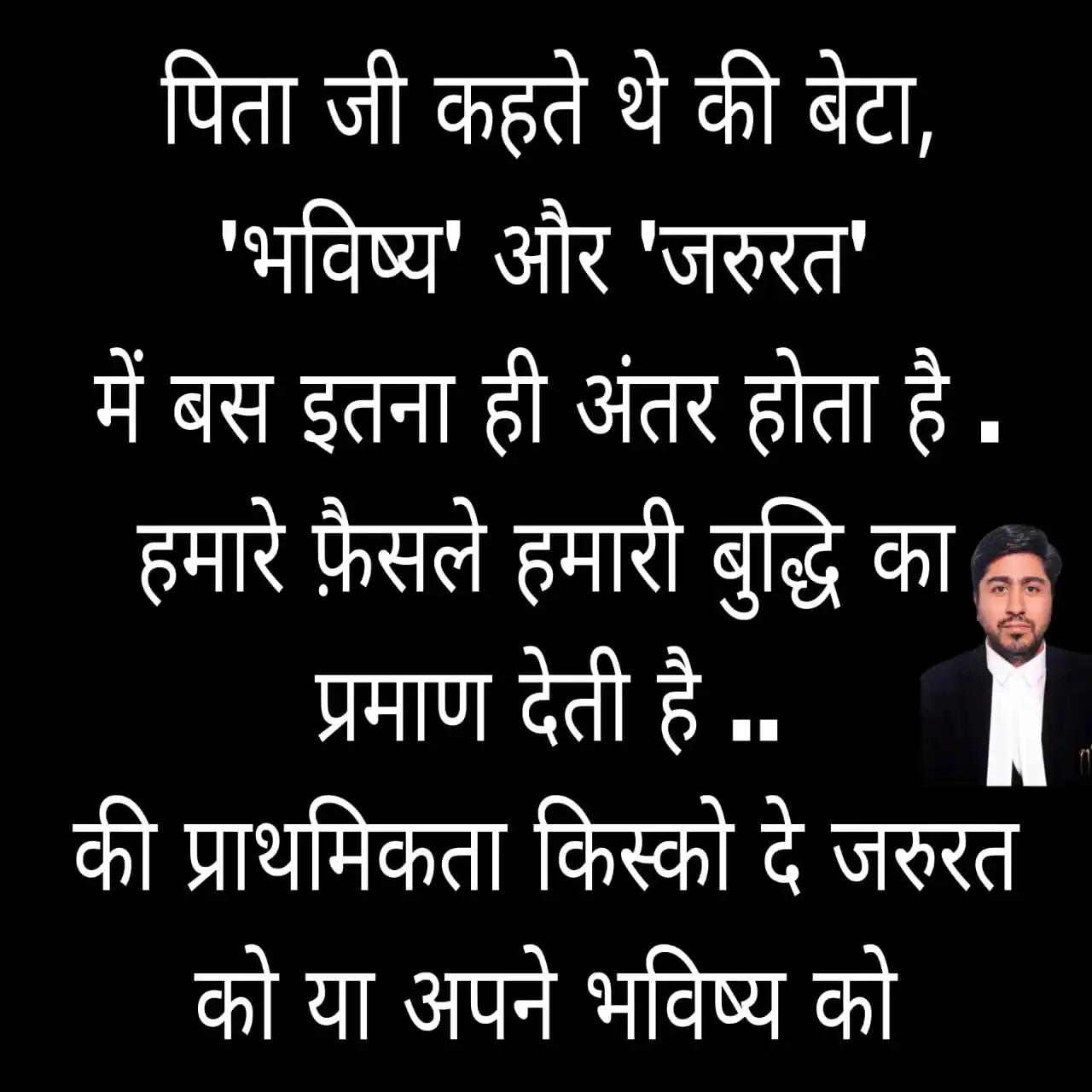
Legal Information by Sewadar Sunny Sachdeva
596 subscribers
About Legal Information by Sewadar Sunny Sachdeva
In Teaching Others We Teach Ourselves 🔹Sewadar Sunny Sachdeva Advocate, 🔹Legal Head At The NEWS 24x7, 🔹National Legal Head At the World Human Rights Organisation, 🔹Former Legal Head At the Shiv Sena Delhi. 🔹President of Hardev Nagar Jharoda Burari Delhi Residential 🔹Member At Hon'le High Court Delhi BAR Association.
Similar Channels
Swipe to see more
Posts

“Since no fundamental right under our Constitution is absolute, in the event of conflict between two fundamental rights, as in this case, a contest between the right to privacy and the right to fair trial, both of which arise under Article 21 of our Constitution, the right to privacy may have to yield to the right to fair trial…the Legislature, being fully aware of the principals of admissibility of evidence, has enacted Section 14 in order to expand that principle in so far as disputes relating to marriage and family affairs are concerned. The Family Court is thereby freed of restrictions of the strict law of evidence. The only test under Section 14 for a Family Court to receive the evidence, whether collected legitimately or otherwise, is based upon its subjective satisfaction that the evidence would assist it to deal effectually with the dispute.” https://www.livelaw.in/high-court/madhya-pradesh-high-court/husband-sneaks-wifes-whatsapp-chat-extramarital-affair-adultery-right-to-privacy-fair-trial-295112

*8th standard student was asked to write an essay on "THIEVES".* This👇🏼👇🏼 is what he wrote: "Thieves are also an important part of a nation's economy. They play a significant role in providing employment and contributing to the nation's development. You might be surprised to read this, but let me shed some light on it. Safes, locks, lockers, cupboards, etc., are made only because of thieves. Many factories and workshops involved in making these items provide employment thanks to this profession. Even in homes, masons and workers get work installing latches, locks, grills on windows and doors. Then, to protect houses, shops, schools, colleges, offices, and factories, security guards and watchmen are essential. Companies that manufacture CCTV cameras, metal detectors, and security systems also generate jobs. Because of thieves, police officers, court staff, judges, lawyers, and others are employed. Purchases of barricades, weapons, bullets, batons, uniforms, vehicles, and motorcycles for the police help boost the economy. Thanks to thieves, jails, jailers, and prison staff have jobs. When items like mobiles, laptops, cars, motorcycles, electrical appliances, purses, or lipsticks are stolen, people have to buy them again, which boosts business. Famous and notorious thieves often enter politics, where even bigger thefts take place. Much more could be said, but overall, the contribution of thieves to a nation's economy is noteworthy." The teacher awarded this research-rich essay full marks (100%) and included the student in the merit list. Source: Lawyer Society (98407 18196)

Agreement To Sell Not Conveyance, Can't Give Any Right In Property Without Suit For Specific Performance : Supreme Court https://www.livelaw.in/supreme-court/agreement-to-sell-not-conveyance-cant-give-any-right-in-property-without-suit-for-specific-performance-supreme-court-295056

In M Patodia Vs R K Birla, 1971 SC, it was held in this matter, that the procurance of an evidence by illegal means, would not amount to the wrong and it is admissible in the eyes of evidence act. Illegality of procuration of an evidence, doesn't render it in admissible. Also it has been reiterated in the matter of Pooranmal Vs Director of inspection, 1974 SC and similarly in the matter of R K Malkhani Vs State of Maharashtra, 1974 SC.

Context: We are going to compare Article 356 of the Indian Constitution with the law of USA which gives power to the President to deploy military in the US States. Actually in Los Angles, widespread protest is going on after arrest made by US immigration and custom enforcement. In response Mr Trump has deployed troops there. According to Article II , President has constitutional authority to protect federal property and also section 12406 of Title 10 of US gives him such power. He has not used "Insurrection act" which he should have used. This act permits President to deploy military during civil unrest. But he has not used this because of potential of abuse in this law as the law is subjective and gives wide ranging powers. What is Title 10? Answer: Title 10 of the United States Code outlines the role of United States Armed Forces. It provides the legal basis for the roles, missions and organization of each of the services as well as the United States Department of Defense.
